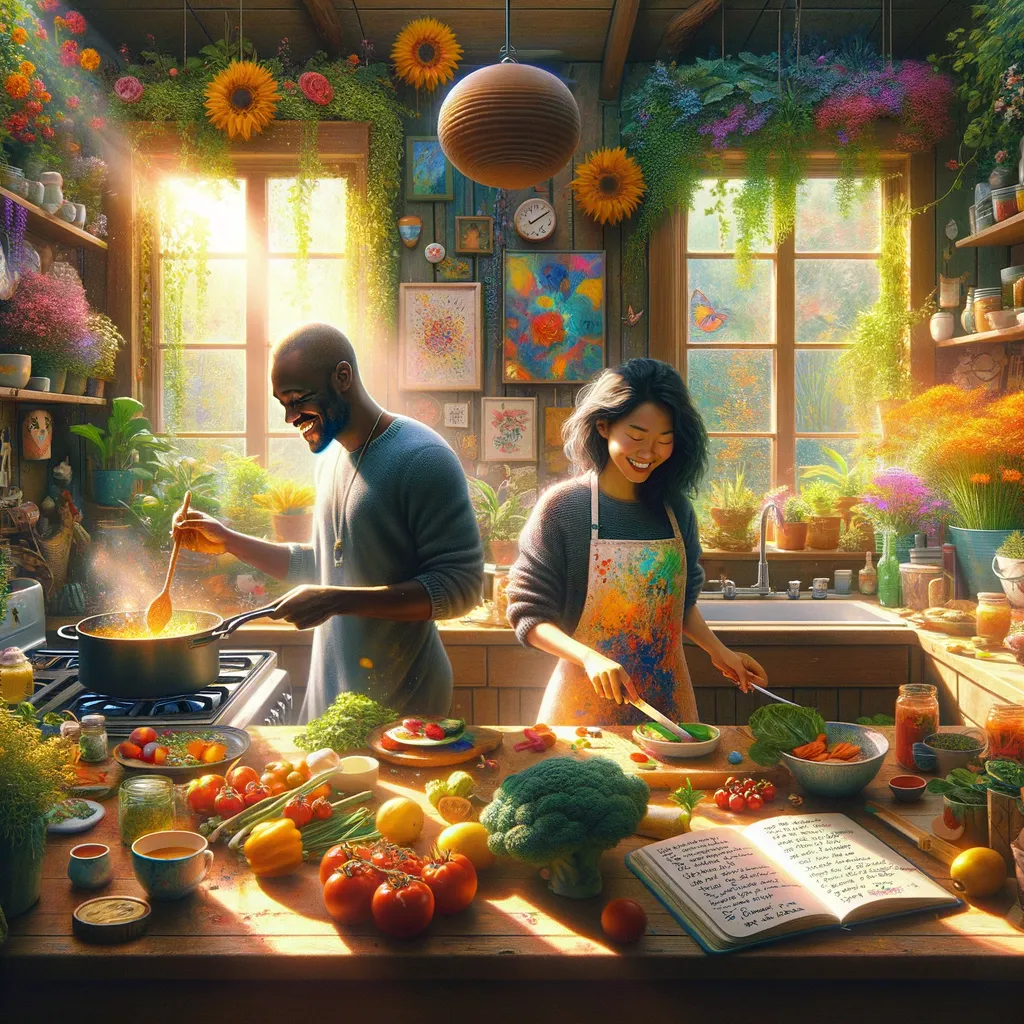Unraveling Ancestral Threads: A Journey of Self-Discovery
In a small, weathered house, laughter and warmth enveloped a family gathering, where the scent of cinnamon mingled with the chill of the air, igniting a journey of self-discovery. As the narrator navigated through familiar faces, they unearthed a profound connection to their grandmother’s empathetic spirit, a trait that stirred both fascination and trepidation. High school presented a delicate balance of guiding friends through their hidden struggles while wrestling with personal doubts, transforming the narrator into a lighthouse amidst emotional storms. Volunteering at a shelter unveiled a tapestry of shared resilience, where vulnerability became a bridge to understanding the weight of inherited burdens and the importance of self-care. Ultimately, this exploration revealed that honoring family legacies does not stifle individuality; instead, it invites a harmonious dance between past and present, illuminating a unique path forward.
In the memory of January 24, 2003, I find myself standing at the threshold of a small, unassuming house, its peeling paint whispering stories of time gone by. The air carries a chill, but inside, warmth emanates from a flickering fireplace. It’s a family gathering, and laughter dances through the rooms, intertwining with the scent of cinnamon and cloves. This was the day when I first understood the weight of inherited traits, not just in the physical sense, but woven into the very fabric of our identities. That day, as I navigated the maze of my relatives, I began to uncover the threads that connected me to generations past.
My grandmother, a woman of quiet strength, had an uncanny ability to read the room. She could sense when laughter masked sadness or when joy was tinged with uncertainty. As I observed her, I felt a tug of recognition. This sixth sense, this empathy that flowed through her veins, was a trait she had passed on, one that I would soon discover coursed through mine as well. It was like an invisible tether connecting us, bridging the gap between the past and the present, and I was both fascinated and terrified by the responsibility that came with it.
As the years unfolded, I found myself in situations where this inherited sensitivity became both a blessing and a burden. It manifested in the little things—an overheard conversation at a café, a friend’s heavy sigh, or even the way the sunlight cast shadows that seemed to speak. I learned to navigate emotional landscapes with an ease that felt both natural and foreign. Yet, with every moment of connection came an echo of my grandmother’s struggles, a reminder that empathy often walks hand in hand with pain. I began to question whether this gift was a double-edged sword.
In high school, the weight of my family’s legacy pressed down on me during a particularly challenging year. I was acutely aware of my friends’ struggles—silent battles fought behind closed doors. It became a dance of sorts; I would try to lift their spirits while grappling with the shadows of my own doubts. I often felt like a lighthouse, guiding others to safety while my own light flickered. This paradox created an internal struggle, one that made me question if I was capable of carrying the emotional weight of those around me without losing myself.
College brought a new chapter, a fresh canvas where I could explore this empathetic nature in unexpected ways. Volunteering at a local shelter opened my eyes to a world where stories intertwined with survival. Each person I met had a narrative that resonated with my own family’s history of resilience. As I listened, I felt my grandmother’s presence guiding me, encouraging me to embrace the depth of our shared humanity. It was there that I discovered the power of vulnerability, the strength found in shared experiences.
Yet, the revelation didn’t come without its trials. I stumbled upon the realization that empathy could easily morph into emotional exhaustion. There were nights when the weight of others’ burdens felt insurmountable, and I questioned whether I could continue to bear witness without sacrificing my own well-being. In those moments of doubt, I sought solace in my grandmother’s old journals, filled with inked wisdom and raw emotion. It was a reminder that even the strongest among us have moments of fragility.
As adulthood approached, I began to understand that this inherited trait, while daunting, was also a gift. It allowed me to forge connections that transcended the superficial, to see beauty in the messiness of life. I learned to create boundaries, to balance my sensitivity with self-care. Each interaction became a tapestry of shared emotions, a reminder that we are all threads in a greater narrative, weaving together our joys and sorrows.
Looking back on that day in January, I realize how pivotal it was in shaping my understanding of family and identity. The laughter and warmth in that small house were not just echoes of the past; they were an invitation to embrace the complexities of love, loss, and resilience. I learned that our inherited traits can be both a mirror and a lens, reflecting who we are while allowing us to see beyond ourselves.
The unexpected twist came when I realized that this journey wasn’t solely about carrying the weight of my family’s legacy. It was also about forging my own path, integrating those traits into a unique expression of self. I began to appreciate the nuances of my empathy, recognizing it as a source of strength rather than a burden. In this dance of discovery, I found my own rhythm, one that allowed me to celebrate both my individuality and my roots.
As I ponder the complexities of inherited traits and their manifestation in my life, I’m left with a question that resonates deeply: How do we honor the legacies we inherit while still forging our own unique paths?
In the delicate balance of inherited traits, the intertwining of joy and sorrow reveals that every legacy is both a gift and a responsibility, urging a journey of self-discovery amidst the echoes of the past.



